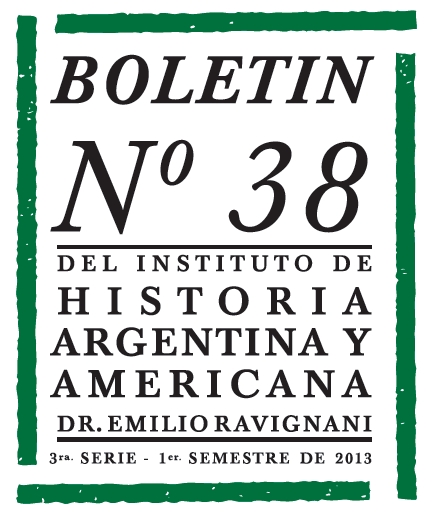TIERRAS PÚBLICAS Y CONSTRUCCIÓN DEL ESTADO EN BUENOS AIRES DURANTE EL SIGLO XIX. LAS DONACIONES EJIDALES Y CONDICIONADAS EN UNA VISIÓN COMPARADA
Abstract
This work tries to analyze the construction of political power in post-independence Buenos Aires countryside. In order to do that, are examined two significant topics: public land distribution policy, and wealth distribution. Regarding public land distribution, are examined, in particular, common land grants (“donaciones ejidales”), and provisory donations (“donaciones condicionadas”). Two case studies are compared: Guardia de Luján and the districts of Azul and Tapalqué, where these land policies were implemented. Main characters of the legislation on grants are studied, and also socio-economic profiles of the groups who share its benefits. The relationship between that process and the construction of social consensus to set up the legal authority of the government is attended as well. Focus is set on the shaping of new political communities, particularly through the administration of Juan Manuel de Rosas and the subsequent period.Downloads
The copyright is transferred to the Boletín, but the authors may retrieve them and reproduce their work in other media or formats by means of a written request to the Editorial Committee. In such cases, the Boletín will be cited as the first publication of the work.
The works are licensed under a Creative Commons Attribution-NonCommercial 4.0 International License, which allows others to share the work with an acknowledgment of their authorship and initial publication in this journal.
Also, by written request to the Editorial Committee of the Boletín, the authors may separately establish additional agreements for the non-exclusive distribution of the version of the work published in this journal (for example, placing it in an institutional repository or publishing it in a book), with an acknowledgement of its initial publication here. No commercial uses are allowed.



















